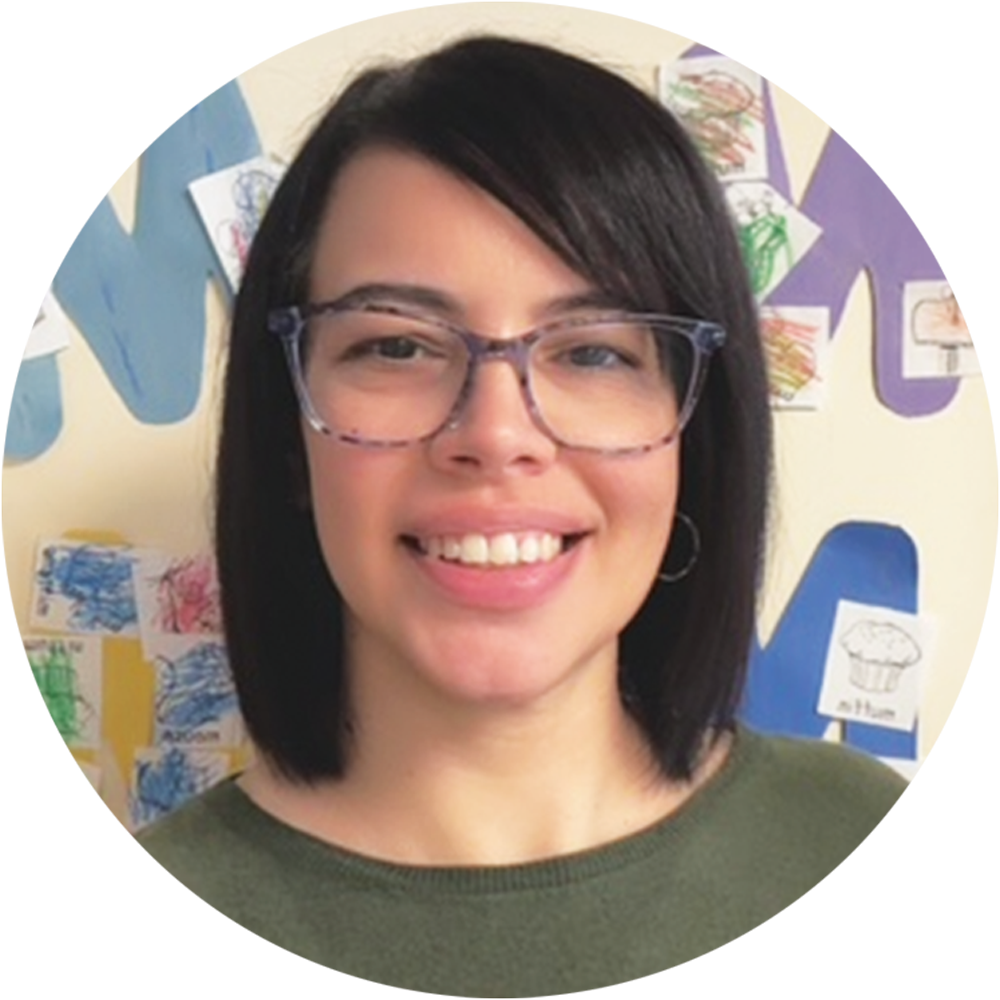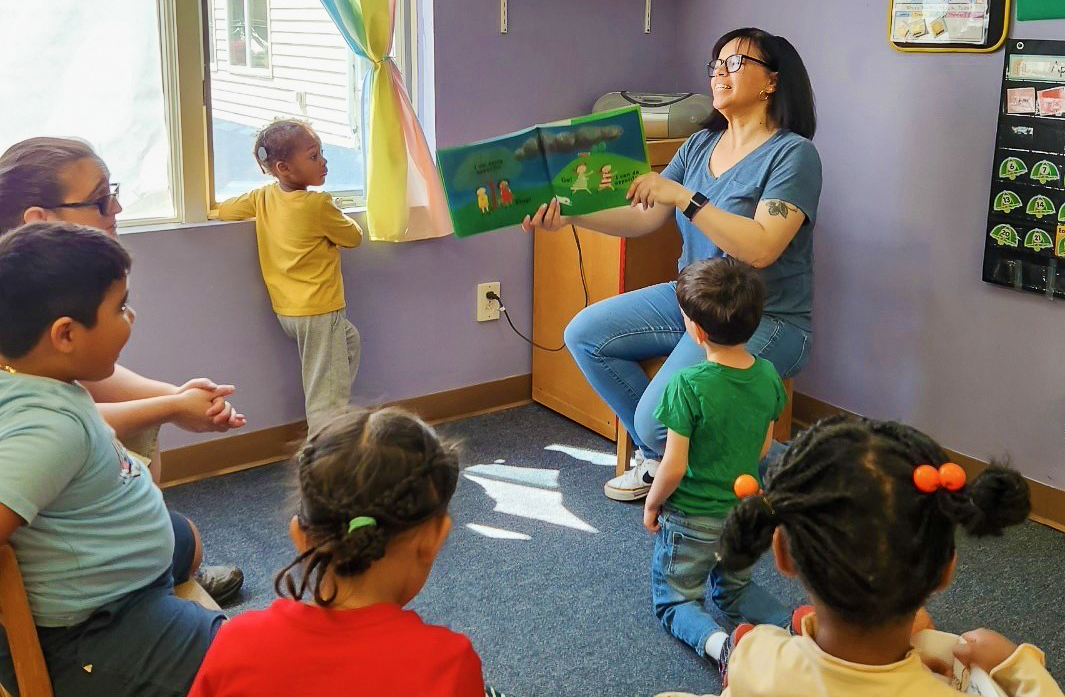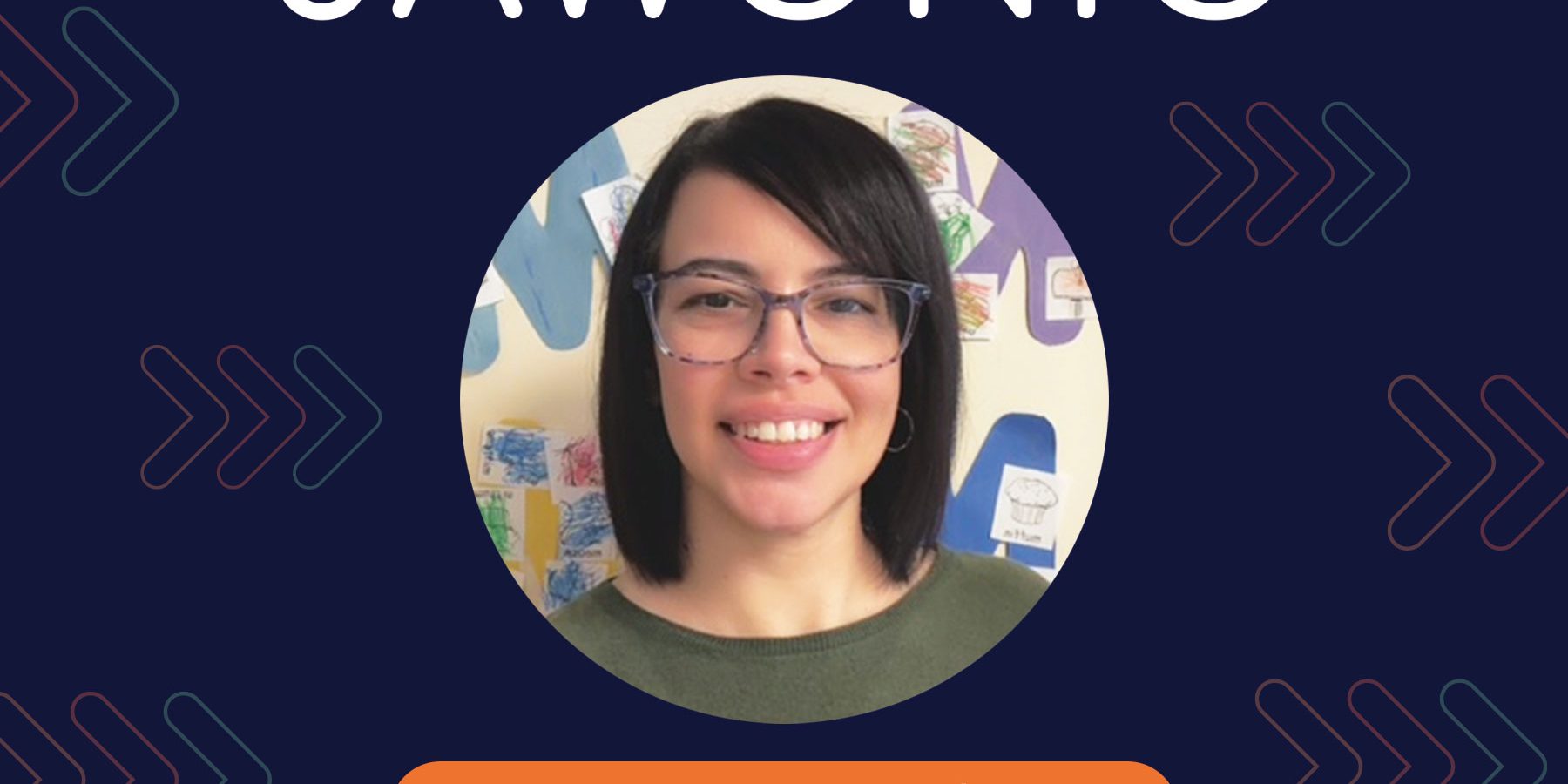

" There are always challenges, but now I see those moments as opportunities to connect and problem-solve, not just as obstacles. And when you start to see progress — even small steps — it’s incredibly rewarding."
Megan Grady
DH: As we approach TEACHER APPRECIATION WEEK 2025 next week (5/5-5/9) we are very excited to put Megan Grady, in the Jawonio Employee Spotlight today! Let’s get Started!! Megan, tell us about your background, where you grew up, went to school and were there any experiences that sparked your interest in working in the disabilities field?
MG: I grew up in Central Nyack and attended the Nyack School District. Central Nyack is a quiet, close-knit community filled with amazing people, and I feel lucky to have called it home. I’m especially grateful for the education I received in the Nyack schools — I was fortunate to have several kind, supportive, and passionate teachers who truly made an impact on me. While there wasn’t one defining moment that sparked my interest in working with students with disabilities, I believe the warmth and encouragement I experienced as a student helped shape my desire to create that same supportive environment for others.
DH: Did you always know you wanted to be a teacher?
MG: Yes, I definitely did, especially since I was a carbon copy of my mom, who inspired me in so many ways. As a child, I’d set up my chalkboard and easel to create classrooms in my bedroom, the living room, or even outside. I’d teach lessons to my dolls as if I had a whole school to run — clearly, my imaginary district had a generous budget that allowed one teacher to operate multiple classrooms!
DH: Did you have role models or teachers in your family?
MG: Absolutely!! Teaching runs in my family. My paternal grandmother was an elementary school teacher in the Clarkstown Central School District and also worked as an independent art instructor. My father taught English and even brought his passion overseas, spending time teaching in India with the Peace Corps. My aunt, who recently retired, was a professor at RCC, and my cousin is currently a teacher as well.
DH: Wow, what a fantastic legacy you are carrying on in your family. With all of those wonderful role models, what specifically drew you to special education?
MG: What initially drew me to special education was watching the incredible work my mother did throughout my life. She wasn’t a teacher, but she spent many years working in residential care as a house manager and later as a director. I grew up watching her go above and beyond for the people she supported — advocating for them, caring for them, and truly making a difference in their lives. I knew I wanted to do something meaningful like she did, and special education became the path where I could combine her influence with my own passion for teaching. Her compassion and commitment left a lasting impression on me.
DH: Let’s talk about impact now. I am sure you have lots of stories that you could share, but is there one student story that stands out at this time?
MG: One student I worked with had significant sensory sensitivities and often avoided activities like finger painting, shaving cream, and slime. To help him feel more comfortable, I’d offer alternatives — like placing the materials in large Ziplock bags so he could explore them without direct contact.

One day, during a group activity, he expressed interest in joining his classmates in building with foam blocks and shaving cream. He was hesitant at first, carefully washing his hands every time shaving cream touched his skin. But over time, he became more comfortable playing a little longer each session, needing fewer breaks to wash his hands. By the end of the school year, not only was he fully participating in sensory play, but he was doing so with joy and far less discomfort.
This story is special to me because it was the child himself who chose to take that first step. He showed bravery in facing a challenge on his own terms and discovered something new to enjoy. Watching that kind of growth is one of the most rewarding parts of what I do.
DH: As a teacher, there are always challenging days. Tell us what keeps you passionate about special education even during those most challenging days?
MG: What keeps me passionate about special education is that I genuinely love what I do. Being a special education teacher truly feels like my calling. Of course, there are challenging days where I feel defeated — but even then, I wouldn’t trade it for anything. For every tough moment, there are ten more where a child reaches a goal we’ve been working on, and we get to celebrate together with a big high five and a “Yay!”
Watching my students grow, overcome challenges, and accomplishing things they once struggled with, that’s what keeps me going. Their progress, no matter how small, is always worth it.
DH: If someone expressed interest in a career in special education, what advice would you give them? Is it a path you'd recommend to everyone?
MG: If someone told me they were interested in a career in special education, my first piece of advice would be to spend time in a classroom — ideally in a few different types of settings. Real-world experience is one of the best teachers. It gives you a clearer picture of the challenges, the rewards, and the day-to-day realities of the job.
Special education is incredibly meaningful work, but it’s not for everyone. That’s why I think it’s important to explore it firsthand. If it’s the right path for you, you’ll know — and it’ll be one of the most rewarding decisions you ever make.
DH: Can you share any special or first Jawonio memories that come to mind?
MG: One of the first memories that comes to mind is from our Jawonio Summer Education Program, when all the classes from our Katzen school walked up to see the “end of summer show.” During the performance, one of the girls in my class started dancing to the music. She noticed another girl nearby, who was in a stroller, also moving along to the beat. Without hesitation, she reached out and held her hand so they could dance together. It was such a simple, beautiful act of inclusion.
Another moment that stands out was on one of the students’ birthdays. During free play, a classmate started drawing a picture as a birthday gift. Once the other children saw what he was doing, they all wanted to join in and make their own drawings too. By the end of the activity, the birthday boy had a whole collection of handmade cards from his friends.
These little moments of kindness and connection make this work so special
DH: That is absolutely so true. So, let’s pivot to your classroom! Please share some of your earlier experiences and what you have realized over time related to working with our students at Jawonio?
MG: One of the biggest challenges I’ve faced in the classroom was learning how to support students who express themselves through behaviors that can be disruptive or difficult to manage. Early in my career, I sometimes felt overwhelmed or unsure of how to respond in the moment.
Over time, I realized that behind every behavior is a reason—whether it’s communication, frustration, or sensory needs. I began to shift my mindset from managing behavior to understanding it. I leaned into strategies like visual supports, calm-down routines, and consistent communication with my team and families.
There are always challenges, but now I see those moments as opportunities to connect and problem-solve, not just as obstacles. And when you start to see progress — even small steps — it’s incredibly rewarding.
DH: Megan, imagine Jawonio 5 years from now. How would you like to see our special education program evolve?
MG: In five years, I hope to see Jawonio’s special education program continue to grow in ways that enrich both student learning and staff support. I’d love to see expanded access to sensory tools and inclusive learning opportunities that keeps Jawonio Education Services on the cutting edge of best practices in special education. Strengthening our partnerships with families would also be a powerful way to keep building the supportive, community-centered environment that makes Jawonio so special.
MG: What makes the program at Jawonio so special is, without a doubt, the children and my coworkers. Every person here brings something unique and valuable to the table, and there’s a real sense of support and collaboration that runs through everything we do.
Throughout my time at Jawonio, I’ve had the privilege of working alongside incredible teachers and therapists who have taught me so much — and continue to. Michelle Mueller, our co-director, has been a mentor and guiding light since my very first day. Her encouragement played a big role in my decision to extend my certification into early childhood education, and I’m so grateful for her continued support over the years.
I’m also deeply thankful for the many teachers who mentored me before I became certified — those who gave me the space to try out ideas, offered feedback, and helped me grow with confidence. And I’m equally grateful to those who continue to mentor me now. Teachers like Audrey, Kristy, Lucille, Danielle, Shari, Clio, Tessa, Rinat, and Kristina have all had a hand in shaping the teacher I am today. I am also appreciative of Heidi who believed in me early on giving me opportunities to sub, supporting my school schedule, giving me that extra push when I started to feel discouraged when I did not receive the email response I was looking for. I’ve also been able to count on our amazing speech therapists for guidance and strategies, especially when trying to connect with students in new ways. The people at Jawonio truly make this place feel like home.
DH: What is your advice for anyone thinking about a teaching career in special education?
MG: My advice for anyone thinking about becoming a special educator is to lead with patience, compassion, and flexibility. This field is not always easy — but it is incredibly rewarding. Some days will be tough, but others will remind you exactly why you chose this path.
Build strong relationships — with your students, your team, and your families. Learn from everyone around you and do not be afraid to ask questions or try something new.
Most of all, celebrate every small victory, because those moments are where the real magic happens.
DH: Megan, thank you so much for your wonderful insight, openness and passion. I think a great way to complete this spotlight is to ask you this final question, what would be the best reason for those seeking opportunities in special education at Jawonio?
MG: The best reason to work at Jawonio is the people — both the staff and the students. It is a place where everyone is truly committed to making a difference. You are surrounded by co-workers who support one another, share ideas, and work together as a team.
There is a strong sense of community, and you feel it every day.
SO MUCH GOOD HAPPENS HERE.
Join our team and start an amazing career in inspiring children and adults everyday.
Click on the button below to find your passion and join our Jawonio Team.
Thank you to our Jawonio Community for reading and sharing our Blogs! If you have ideas or suggestions for us, or personal stories you would like to share, please contact Diana Hess, CCO, at diana.hess@Jawonio.org
Please visit Jawonio.org/careers








